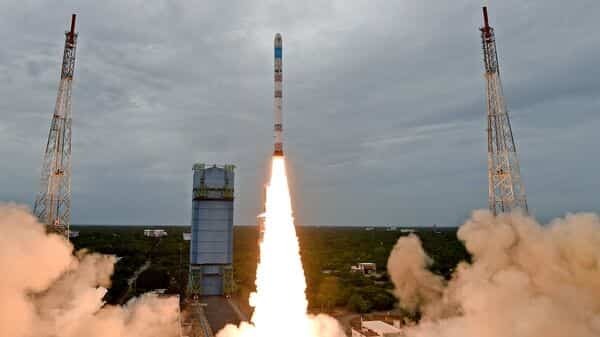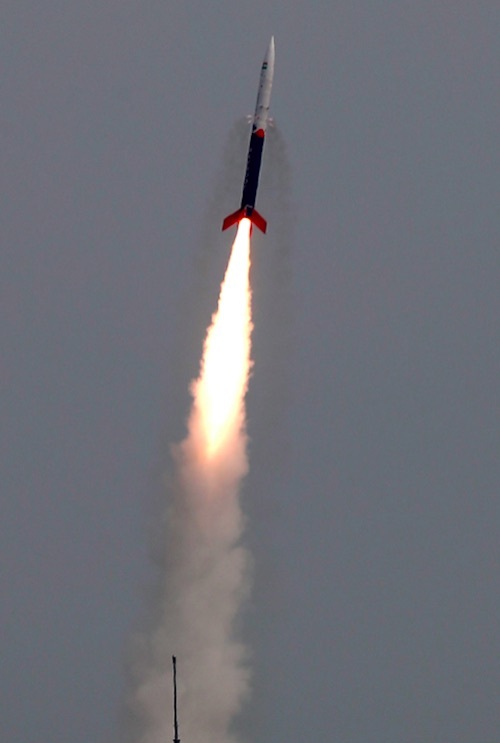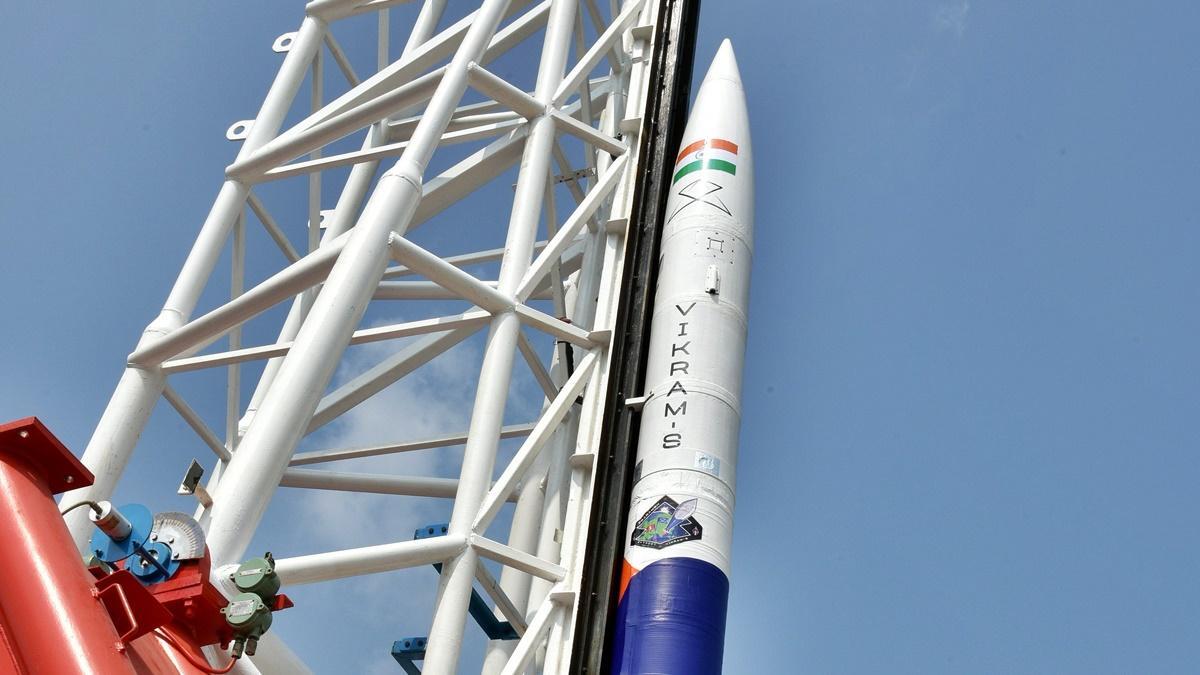15.11.2022

With the expected launch of Vikram-S, a rocket that will put three microsatellites into space at an altitude of 120 km, India’s state-run space programme will evolve into a proper space economy with private sector participation. Vikram-S is a demonstration launch for Hyderabad-based start-up Skyroot, whose planned Vikram-1 rockets are intended to launch satellites into low-earth orbits.
Quelle: mint
+++
Vikram-S: India's first private rocket all set for launch tomorrow
Vikram-S, India's first privately developed rocket is all set to launch from the Indian Space Research Organisation (ISRO)'s launchpadat Sriharikota tomorrow, Tuesday, November 15. This move will provide a favorable environment to private players in the space sector.
India's first private rocket, Vikram-S, is developed by a Hyderabad-based startup Skyroot Aerospace. The rocket will be launched on a sub-orbital mission, named as Prarambh, with three payloads.
Skyroot Aerospace CEO and co-founder Pawan Kumar Chandana informed the news agency PTI that the launch will take place at 11.30 am tomorrow.
Apart from being the nation's first private launch, it will also be the maiden mission of Skyroot Aerospace, named 'Prarambh', and will carry a total of three payloads in space. Out of them, two will be Indian customers and one will be foreign customers.
"Heartbeats quicken. All gazes are up to the sky. The earth is listening. It all points to 15 Nov 2022 for launch," Skyspace Aerospace told PTI on Friday.
How Prarambh mission will impact India's private space sector?
The successful launch of the mission will make Skyroot the first private space company to launch a rocket in space from India. This will pave way for the growth of India's private space sector which was opened in 2020. Since then, the country has been trying to attract private space companies to launch rockets from India.
The name of the launch vehicles of Skyroot are kept 'Vikram' as a mark to pay tribute to the founder of the Indian Indian space programme and renowned scientist Vikram Sarabhai. Skyroot company was the first startup to enter into a memorandum of understanding with ISRO for launching its rockets.
As per PTI reports, the ultimate aim of opening the space sector for private companies in India is to provide a conducive environment for cost-efficient satellite launch services by disrupting the entry barriers. This will help these companies in advancing their mission and make spaceflights affordable, reliable and regular for all.
Quelle: mint
----
Update; 18.11.2022
.
Skyroot launches India's first privately built rocket into space

India’s private sector today took its first step into the country’s space sector by successfully launching a rocket carrying three satellites.
Vikram-S, the rocket made by four-year-old Hyderabad-based startup Skyroot Aerospace, lifted off at 11.30 am from the Indian Space Research Organisation’s (ISRO) Sriharikota range on India’s southwestern coast.
In less than five minutes, it had reportedly fallen into the Bay of Bengal—but not before placing its payload in space as planned. The three satellites were built by Andhra Pradesh-based N Space Tech India, Chennai-based startup Space Kids, and Armenian BazoomQ Space Research Lab.
Soon after the success of the mission, named “Prarambh” (the beginning), ISRO took to its Twitter account to confirm the development.
“Vikram-S soared to an altitude of 89.5 km after its launch and met all the parameters,” Skyroot Aerospace said.
A new beginning for the Indian space sector
Last year, the Indian government decided to open up its space technology sector to private companies. It also launched a programme to promote collaboration between them and ISRO. Skyroot was the first startup to sign up.
Skyroot’s Vikram S, a single-stage suborbital rocket powered by solid-fuel propulsion, is itself named after Vikram Sarabhai, the father of Indian space research.
“The Vikram-S rocket...would help test and validate the majority of the technologies in the Vikram series of space launch vehicles,” Naga Bharath Daka, chief operating officer of Skyroot Aerospace, had said earlier in a statement.
After Vikram-S, Skyroot plans to launch two other rockets in the Vikram series.
Quelle: Quartz
+++
Skyroot's Vikram-S rocket launched successfully, marks entry of private sector into Indian space program
The mission marks the thumping entry of the private sector into the Indian space program on the lines of the US, Europe, and China.

In Short
- The Vikram-S rocket launched from the sounding rocket complex
- It was a full-scale suborbital launch for the company
- The company is developing three variants of the Vikram rocket
By India Today Web Desk: Skyroot Aerospace on Friday made history by launching India's first privately made rocket Vikram-S into space. The successful launch marks the entry of the private sector into the Indian space program, which has so far, remained government-controlled and funded.
The Vikram-S rocket launched from the sounding rocket complex of the Indian Space Research Organisation (ISRO)'s Satish Dhawan Space Centre in Sriharikota. The rocket was launched with three customer payloads into space touching an altitude of over 90 kilometers.
The company said that the Vikram-S rocket touched a peak altitude of 89.9 kilometers gaining a speed of Mach 5, five times the speed of sound. The launch vehicles met all the mission parameters, clearing the stage for the company to launch the Vikram-I rocket next year.
